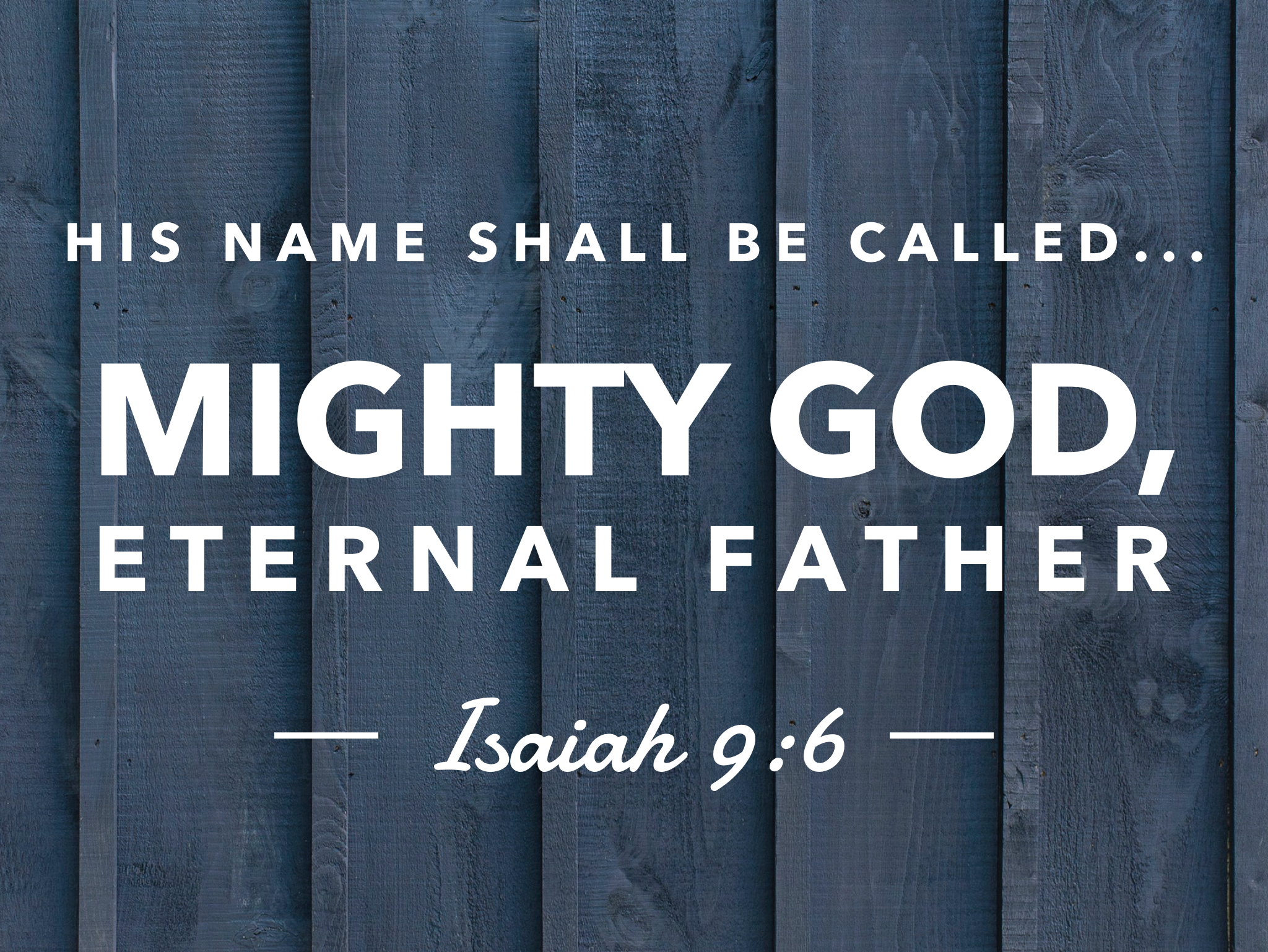How is God eternal?

When we talk about God’s attributes we try to answer questions such as “Who is God?” and “What is God like?” Now, these questions may seem futile—how can our finite minds grasp who God is or what He is like?
These questions may also seem rather abstract, questions that scholars, but not ordinary Christians, may find fascinating. Instinctively, we tend to be much more interested in what God has done for us rather than in who He is. In a sense, this is understandable.
Arguably, one of the achievements of the Protestant Reformation was to refocus people’s minds on what God had done for them in Christ. John Calvin frequently criticized medieval theologians for “merely toying with idle speculations”1 about the nature or the essence of God.

However, Calvin and the other Reformers did not deny the utility of thinking about God’s attributes. On the contrary, they encouraged a knowledge of God that would foster pietas, as they called it, what Calvin defined as “that reverence joined with love of God which the knowledge of his benefits induces.”2
However, the topic of God’s attributes was explored in greater depth by seventeenth-century Reformed theologians.3 Among those, no one wrote a more comprehensive study than the English Puritan Stephen Charnock. His Discourses upon the Existence and Attributes of God is the most extensive Puritan treatise on the doctrine of God.
It was written at the end of his life for the congregation in Bishopsgate, London, that Charnock co-pastored with another famous Puritan, Thomas Watson. Unfortunately, the work was left unfinished when Charnock died in 1680 while writing a discourse on the patience of God. The work displays the qualities that make him one of the best Puritan theologians: a sharp mind, remarkable exegetical skills, and a peculiar gift for striking metaphors and analogies. However, this work is especially valuable and still worth reading today because of its typical Puritan emphasis on practical applications.
Charnock never gives the impression that the attributes of God are simply qualities that describe who He is; rather, He affirms the classical Christian doctrine that God is all His attributes fully at the same time.

There is no distinction between His attributes and His essence (divine simplicity). Charnock’s focus is also firmly Christocentric, as he always shows how Christ claimed these divine attributes for Himself. Now, these discourses on the existence and attributes of God are nearly one thousand pages long,4 and one may ask why he wrote so much on this topic.
I believe it is because Charnock knew that glorifying God is our privilege and duty as Christians, and we cannot glorify Him as we should if we do not have a right view of His attributes. Charnock’s colleague in Bishopsgate, Thomas Watson, wrote that to “glorify God” means, among other things, to have “God-admiring thoughts.”5 This is exactly what Charnock tries to instil in us through those discourses. In one of the introductory discourses, he makes the crucial point that worship is essentially an act of understanding, an idea that we desperately need to recover today. Says Charnock:
Worship is an act of understanding, applying itself to the knowledge of the excellency of God, and actual thought of his majesty, recognizing him as the supreme lord and governor of the world, which is natural knowledge; beholding the glory of his attributes in the Redeemer which is evangelical knowledge.6
Let us start where Charnock starts, with God’s eternity. Charnock begins by affirming that it is possible for us to think about such an attribute. Although we clearly cannot grasp fully what God’s eternity means, we can understand that this attribute is real:
Though we cannot comprehend eternity, yet we may comprehend that there is eternity; as though we cannot comprehend the essence of God, what he is, yet we may comprehend that he is.7
Scripture helps us by talking about these things in a way that is accessible to us. In fact, the text of Scripture that Charnock exegetes as a starting point for his reflection is Psalm 90:2:
“Before the mountains were brought forth, or ever thou hadst formed the earth and the world, even from everlasting to everlasting, thou art God” (KJV). This is a suitable text because it clearly states the eternity of God in a way our finite mind can understand: it stresses the preexistence of God (“before the mountains were brought forth”) and the future extension of it “from everlasting to everlasting.” Charnock says,
Though the eternity of God be one permanent state without succession, yet the Spirit of God, suiting himself to the weakness of our conception, divides it into two parts, one past before the foundation of the world, another to come after the destruction of the world.8
Charnock then endeavours to explain what God’s eternity means, distinguishing it from other “kinds” of eternity. In particular, the eternal life promised to those who are in Christ. God’s eternity is “His own” eternity; God has life in Himself, by His essence, and not by “participating” in someone else’s eternity. But how can we describe God’s eternity?
For Charnock, the best way to understand it is by “negation”—stating what He is not. God is without beginning, end, or “succession.” While all these “negative attributes” are a source of wonder, the one that seems to capture Charnock’s imagination, and the one that I think should capture our imaginations, is the absence of beginning, because it highlights the unchangeable resolve of God to save men:
The gospel is not preached by the command of a new and temporary God, but of that God that was before all ages. Though the manifestation of it be in time, yet the purpose and resolve of it was from eternity.9
Charnock never gives the impression that the attributes of God are simply qualities that describe who He is; rather, He affirms the classical Christian doctrine that God is all His attributes fully at the same time.
The practical applications of the doctrine constitute the most striking part of Charnock’s exposition, and three, in particular, stand out.
(1) First, the main “use of information” is that Christ is God because eternity is an attribute of God that is clearly ascribed to Christ (Col. 1:17).
This truth is stated in numerous texts, such as Micah 5:2, which mentions the “going forth” of Christ twice—once in the days of His incarnation and once in eternity.
However, Charnock does not merely quote proof texts (although he does mention Col. 1:17, Heb. 13:8, and Rev. 1:8). Instead, with Puritan precision, he carefully distinguishes between Christ’s eternity and the one promised to believers. Christ’s eternity is an eternity of “actual possession” not merely “of the decree.” This applies both to His glory and His preexistence.
Christ speaks of the glory that he had “with the Father before the world was” (Jn 17.5), when there was no creature in being; this is an actual glory, and not only in decree; for a decreed glory believers had, and why may not every one of them say the same words, if it were only glory in the decree? Nay, it may be said of every man he was before the world was because he was so in decree. Christ speaks of something peculiar to him, a glory of actual possession before the world was.10
The eternity of Christ is clearly of fundamental importance to our faith. There is no hope for sinners such as us without it.
As the eternity of God is the ground of all religion, so the eternity of Christ is the ground of the Christian religion. Could our sin be perfectly expiated had he not an eternal divinity to answer for the offences committed against an eternal God?11
(2) The second striking application is a “use of comfort.”
I think it is obvious why the eternity of God is a source of encouragement for us. If God is eternal, so are His covenantal promises to us, and we are united to a God who is not only immortal but One who will be a source of constant and unfading enjoyment. An eternal God is not only a God who has the power to keep His promises but also One who has perfect wisdom deriving from a perfect foreknowledge. This, incidentally, shows how God’s attributes are intricately linked to each other:
Men may break their promises because they are made without foresight; but God, that inhabits eternity, foreknows all things that shall be done under the sun, as if they had been acting then before him; and nothing can intervene or work a change in his resolves, because the least circumstances where eternally foreseen by him.12
Today, more than ever, the church needs to treasure God’s glorious attribute of eternity in which it partakes.
In the greatest confusions, the church’s eyes are to be fixed upon the eternity of God’s throne, where he sits as governor of the world. No creature can take any comfort in this perfection but the church; other creatures depend upon God, but the church is united to him.13
(3) Finally, and perhaps more importantly, a “use of exhortation”: our need to reflect on the heinousness of sinning against an eternal God. Charnock makes this startling statement: “All sin is aggravated by God’s eternity.”14 Why is that? Because all sin stems from an inadequate view of God’s attributes, in particular, His eternity:
There is in the nature of every sin a tendency to reduce God to a not being. He that thinks unworthily of God, or acts unworthily towards him, doth (as much as in him lies) sully and destroy these two perfections of his, immutability and eternity. He that loves a perishing thing with the same affection he should love an everlasting God contemns (despises) his eternity.15
This challenging thought deserves long and careful meditation. If there is one thing that Charnock teaches us, it is this: thinking about God’s attributes may be hard work, but no other object of study is more suitable to humble and expand our mind. It allows us to forget ourselves and focus all our attention on the only true God who is the source of all life and blessings. This, surely, is the spring from which all pietas flows.
Institutes of Christian Religion 1.2.2 ↩︎
Ibid., 1.2.1 ↩︎
An exception is Girolamo Zanchi’s scholarly treatise De Natura Dei (1577). ↩︎
All quote references in this article are to the first volume of the Banner of Truth edition of Charnock’s works. ↩︎
Thomas Watson, introduction to A Body of Divinity. ↩︎
The Works of Stephen Charnock, vol. 1 (1864; repr., Edinburgh, Scotland: Banner of Truth Trust, 2010), 298. ↩︎
The Works of Stephen Charnock, 1:348. ↩︎
The Works of Stephen Charnock, 1:347. ↩︎
The Works of Stephen Charnock, 1:350. ↩︎
The Works of Stephen Charnock, 1:361. ↩︎
The Works of Stephen Charnock, 1:361. ↩︎
The Works of Stephen Charnock, 1:367. ↩︎
The Works of Stephen Charnock, 1:365. ↩︎
The Works of Stephen Charnock, 1:362. ↩︎
The Works of Stephen Charnock, 1:362. ↩︎
Author: S. Simonnin

